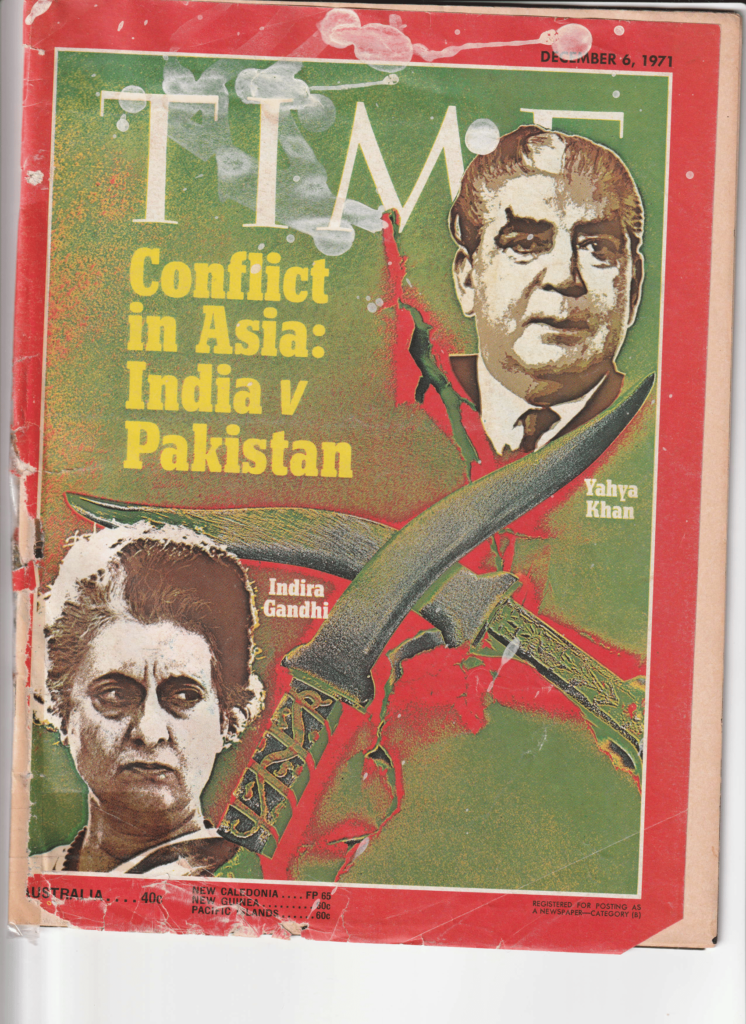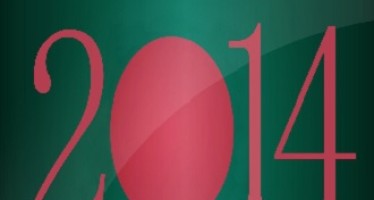Our independence war and my experience

- Fakhruddin A. Chowdhury
I was about 24/25 years of age when I arrived here in Australia landed in Sydney alone. I cannot believe it was almost 50 years ago. I am quite happy and jubilant that Allah had kept me alive to see the 50th and Golden Jubilee anniversary of the independence of our nation. Having seen the lead up to the 1970 elections of central and provincial governments of Pakistan, then crackdown in March 71, the declaration of independence and the commencement of armed struggle to liberate the country for seven months in the country and two months of final part of the war in Australia makes me feel to be fortunate to have taste and experience of all fields. I lodged an application to migrate to Australia in about March/April 1970 and the approval letter was received in Oct. 70. For some reasons I delayed travelling to Australia immediately. That made me fortunate, as an officer in the PCSIR (science Lab) to participate in 1970 elections as deputy election officer in an election booth situated in Jatrabari just outside Dhaka city. Even now I regard that as a privilege and an honour. The euphoria of landslide victory in both the elections were unprecedented in the history Bangalee lives.
Then when Yahya khan, the Pakistani military ruler postponed the sitting of the national assembly and Bhutto’s stubborn opposition to allow Bangabandhu to form the government, then there was onset of Gandhi-an type of non-cooperation movement. Then there was enormous pressure imposed on Bangabondhu by Bangalee leadership to declare independence. Just at that moment of the movement Bangabandhu resisted to do so. Then his memorable speech at Race course maidan on 7 March, 71 eventuated. I was never an active political activist and never went to any political public meeting but I decided to go and attend 7 March meeting. The whole area was covered with people and people, such was the response to independence call. I found only a standing room in a little space in a corner of Shahbagh Hotel and listened to father of the nation’s speech in full with a friend. Vast area of the maidan was full of people. The earth-shattering speech had inspired the Bangalee nation to hit the ground as the father said with anything they could find to liberate the nation. Just at that moment we saw a PIA jet flying in to land at Dhaka airport. We suspected that the newly-appointed Governor Butcher Tikka Khan was on it. If he was, he must have seen with his own eyes how Bangalees were firmly determined to liberate the nation from the clutches of Pakistan.
In recent past few years I had seen and read a news clip published in the Daily Ittefaq on a Historic meeting of Taliapara tea garden held on 4 April, 1971. A meeting was held in the Bangalow of Taliapara Tea Garden manager of about 27 retired defence officers of East Bengal Regiment. One was missing and that was Gen. Ataul Ghani Osmani, who was only a few hundred metres away in Indian side of the border in Agartola. They did not want to hold the meeting without Gen Osmani’s presence, but the way was separated by thick jungle. One army driver was sent with a jeep to bring him and an army of workers had been deployed to cut the jungle and make way for a jeep to pass through. It is quoted in liberation history books the significance of this 4 April 1971 meeting held on the second floor of manager’s bangalow. With main emphasis on Bangbandhu’s historic speech of 7 March, the agenda of the meeting for Gen Osmani and other defence officers were to take the historic oath to liberate the nation. On the basis of the decisions taken at the meeting Mukti bahini was formed, later on 10 April people republic of Bangladesh government in exile was formed, and on 17 April that government took the oath in Mujibnagar at number 8 Theatre Road, Kolkata, and then after nine months of armed struggle the nation was liberated on 16 December, 1971. It is said that If it was not the Taliapara 4 April Meeting the mukti bahini would not have been formed and armed war would have been chaotic and not a disciplined one and the central command of the coalition of friendly forces would not have been formed. So was the unforgettable significance of the three dates in our nation’s independence, they were 7 March, 4 April and 17 April of 1971. I believe Taliapra Tea garden Manager’s bangalow stands now as a museum for independence struggle.
After the crackdown on 25March night of 1971, there was a doom and gloom on bangalee faces as to what to do and what was going to happen to our future. I lived very close to boundary of the Peelkhana EPR headquarters. Continuous Day and night firings from there was ear-shattering and trauma it caused, was over-bearing. The government offices were closed and Bangalee officers not courageous to do anything, many of them were not coming to the offices. Everyone eventually had to have an identity card (which westies used to call it as dundy card). Everyone had to have one. One found not having one was suspiciously dubbed freedom fighter and mostly taken away.
Having no passport and no visa issued I could not leave Bangladesh till 9 oct. 71, very closed to a year after my entry to Australia was approved. Passing through Dhaka airport was like passing through a battle field with mainly urdu-speaking staff who were not Bangalee friends. I could not tell anyone of my family or friends till I passed through that gate. When I arrived in Sydney I found very limited number of Bangalee residents and but were all quite active in the awareness Bangladesh Struggle for independence. Among those limited number of Bangalees most of them were on higher studies with Govt scholarship. Nevertheless, they participated under the cover of some guise. Their Pakistani colleagues were very active in keeping a spying eye on them. As soon as they noticed any anti Pakistani activities they were going to report back home to either take revenge on families or to call them back home. They were cleverly kept under cover and were not exposed too much. This movement was lead by Mr Nazrul Islam who with less than a hand full of the residents who had no such fear of that retribution. I joined them immediately and travelled in many places with Mr Nazrul Islam for main purpose of propagation, publicity and awareness. One such meeting took place in a public meeting called by a then member of parliament the Hon. Les Johnson (deceased now) and introduced us to the audience and we received a rousing welcome. He later became a minister when The Hon. Mr Whitlam won the next federal election.
We also then formed an association to formally represent us as a separate ethnic identity and named it as Bangladesh People’s Association with Mr Nazrul Islam as president and myself as secretary.
We found Australians of all walks of life were sympathetic and supportive to our struggle for freedom. One person even went on hunger strike on the street of Sydney protesting and demanding to stop atrocities on unarmed Bangladeshis. Then the nation was liberated on 16 December, 1971. I myself so excited and having suffered the atrocities for seven months, was just about to run home and celebrate the smell of freedom with friends and families but could not as there was no communication available. Unfortunately I had to postpone that trip till early 74. Then Dr Fazlul Huq arrived with his family from England and joined us. Dr Huq and I went many places mainly then to appeal to Australians for materials and material assistance to help build the war ravaged country. We urged the people to put pressure on the federal government through their local members to recognise the newly liberated country. Right at that time Bangladesh government appointed a roving ambassador perhaps his name was Khurram Khan Panny who also arrived. That bolstered our campaign for recognition as well. Some time after the surrender of the enemy forces in Bangladesh I wrote to the then PM of Australia The Hon Billy McMohan urging him to recognise the new nation. The recognition came about soon after almost in defiance of their allies. I received the following reply:

Media world had been covering the events in the sub-continent with minute details and visible sympathies towards Bangladeshi people. Some selected coverage are enclosed. (scans 1-4 and 6-7)



In Dec. 72, Australia had a federal election. After 23 years of wilderness in opposition The Australian Labour party had won the election under the leadership of The Hon. Gough Whitlam. As soon as the time was rife for him he visited Bangladesh, may be the only Australian PM to have visited Bangladesh.
Within a short time we collected plane loads of old clothing and other relief materials to send to Bangladesh. Many airlines also offered for free freight and we took the advantage gladly.
Australia had been fortunate to have had two best diplomatic sons of Bangladesh appointed as first and second High Commissioners of Bangladesh in Australia. They were none other than Mr Hossain Ali and Mr Kibria. The handful of Bangladeshis that we were living in Sydney, attended the presentation of the credentials of Mr Hossain Ali to NSW state Government headed then by the then Premier Mr Robert Askin. After that we entertained His excellency with our own reception at Mr Nazrul Islam’ residence. These famous diplomats were the first one’s to defect as Pakistan Government’s diplomats in their respective countries of posting. Their Diplomatic skills had helped Australia to become one of best well -wishers of Bangladesh and received generous aids and trade facilities when the new infant country needed most. It was also one of the first ones to recognise the new nation. Because of the diplomatic skills of Mr Ali and Mr Kibria, a foundation of a good relationship was laid and the subsequent High Commissioners found it easier to build on a stronger relationship from then on.
In October, 2012, the then PM of Australia The Hon. Julia Gillard issued a white paper on Australia’s policy on Asian Century, outlining an ambitious Australian policy to navigate thru this period of economic and social change and recognising what could be its role in the stability of the region. The Australian HC to Bangladesh His Excellency Greg Wilcock at the time promoted that with an article on the white Paper and it was published in the Daily Star of Bangladesh. Soon after I also wrote an article virtually in reply to that. That was also published by the same paper. In the 50’s, 60’s or even 70’s of the past century Australia was hardly ever been a destination for Bangladeshis to settle, work and live. The number was visible from earlier photographs above well depicting how big was the early settlement. With good relationship and skill of our compatriots Australia has become one of the primary settlements of Bangladeshis now and growing. It had been revealed before that Bangladeshi people are visible in top positions almost everywhere in Australia. There are vast settlements in major cities like Canberra, Sydney, Melbourne, and Brisbane. Based on Bangladesh-origin people living abroad, Australia is likely to become one of the major Bangladeshi settlements in the world outside Bangladesh soil. This is because of our eloquent testimony to hard work, speak the language, an undeniable wealth of ability to assimilate in a multicultural society. This is going to, no doubt, enrich our nation back home. We can only hope for better days ahead. We, the Bangladeshis characteristically live in style wherever we live. We have hundreds of our own registered associations, our own Political parties with own political activities and programs and rivalries for that matter. Cultural activities abound, own religious places, language movement memorials and elected members and innumerable health workers and what not. Let us all together keep it up and celebrate.
Related Articles
২০১৪ সাল হউক , মুক্তিযুদ্ধের চেতনা বাস্তবায়নের, দ্বিতীয় মুক্তিযুদ্ধ শুরুর বৎসর
১.আসলে মেকআপ দিয়ে বাহ্যিক অবস্থা সাময়িকভাবে ঢেকে রাখা যায় , প্রকৃত সত্য সাময়িকভাবে দৃশ্যের আড়ালে রাখা যায় । কিন্তু সব
China eyes huge investment in Bangladesh
Many nations define themselves in terms of territory or people; China defines itself in terms of history. It looks to
শেখ হাসিনার সাফল্য ও গণতান্ত্রিক অভিযাত্রা
একটি শুদ্ধ নির্বাচন ও একটি শুদ্ধ ভোটার তালিকা দাবিতে যখন আওয়ামী লীগ সহ মহাজোট সোচ্চার, তখন দলীয় রাষ্ট্রপতি ইয়াজউদ্দিন আহমেদ







